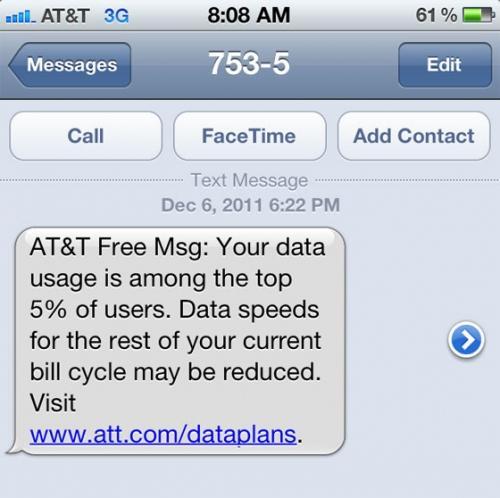[Update: Debunked] T-Mobile Gives Users Full Use of Network As Competitors Throttle iOS Users
Update: Turns out these allegations have been debunked, folks. The guys over at AnandTech have dug deeper into the source code in question and have disproven the claims that Apple throttles data throughput on iOS devices. Check out their in-depth analysis of the claims here. Just goes to show that you can’t trust everything you read, even if it comes from those nice fellas over at TmoNews.
A new report by Joseph Brown over at iTweakiOS, the same fellow that brought us the hacked T-Mobile iPhone carrier update, hit the wire today, bringing to light some rather interesting snippets of code within Apple’s iOS. Now, I’m no coding expert, but it seems pretty plain that these suspicious lines of code actually intentionally throttle the data speeds of iOS devices connected to Verizon, Sprint, and AT&T’s networks, even at off-peak times. T-Mobile is thankfully missing from the lineup of offending carriers.
What this means is that every cellular-enabled Apple product on Verizon, AT&T, and Sprint suffers from artificially limited data throughput. No official statement has been issued by either Apple or the offending carriers at this point in time, but it can be inferred that this code is present within iOS per request of the carriers, since it is conspicuously MIA in T-Mobile’s carrier bundle.
This just seems strange to me. While I understand protecting the quality of service of ‘the 99%,’ carriers like Verizon and AT&T charge a massive $15 for every gigabyte of data over a customer’s allotment and thus stand to gain on overage fees. More throughput makes it easier to guzzle data, which makes it easier to go over your allotment. Mo’ money.
Curiously, good guy Magenta doesn’t seem to be throttling data speeds for its iPhone users. We may get stuck on 2G quite a bit, but at least when we have 3G/4G we get full use of what the network can give us.

